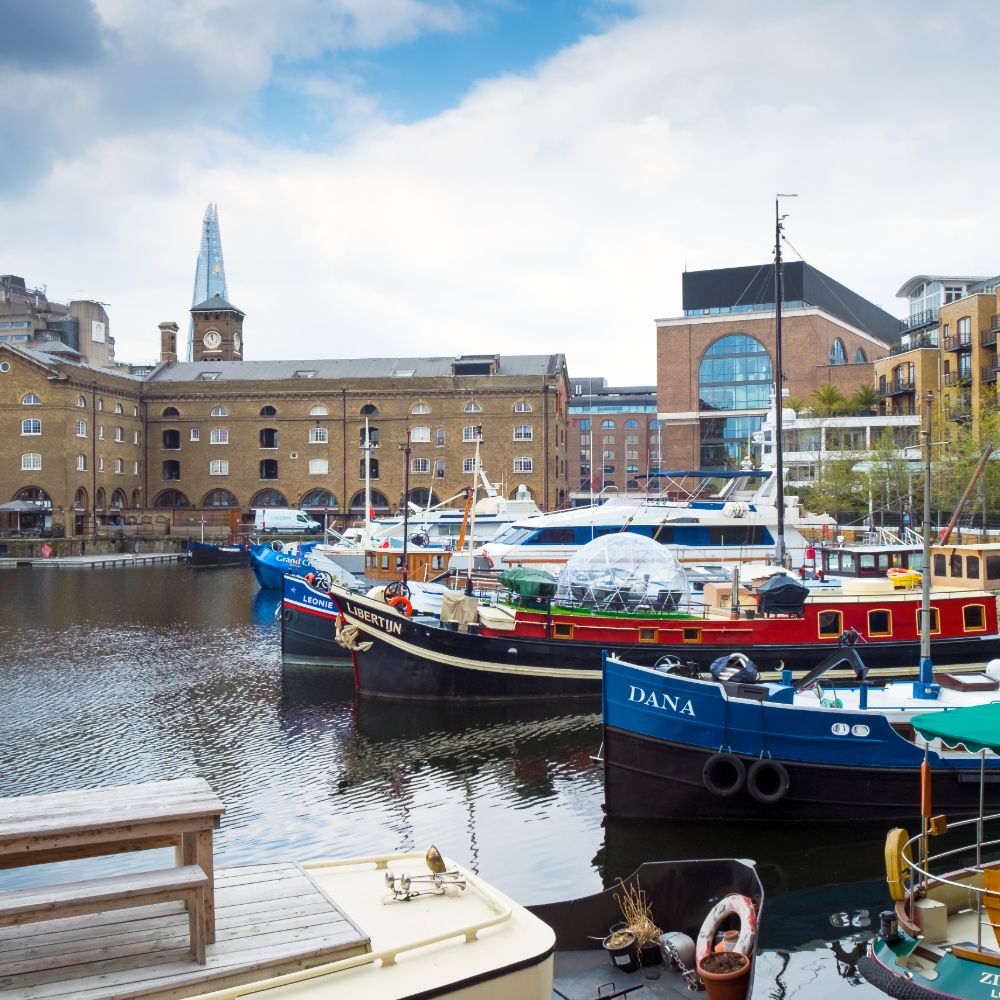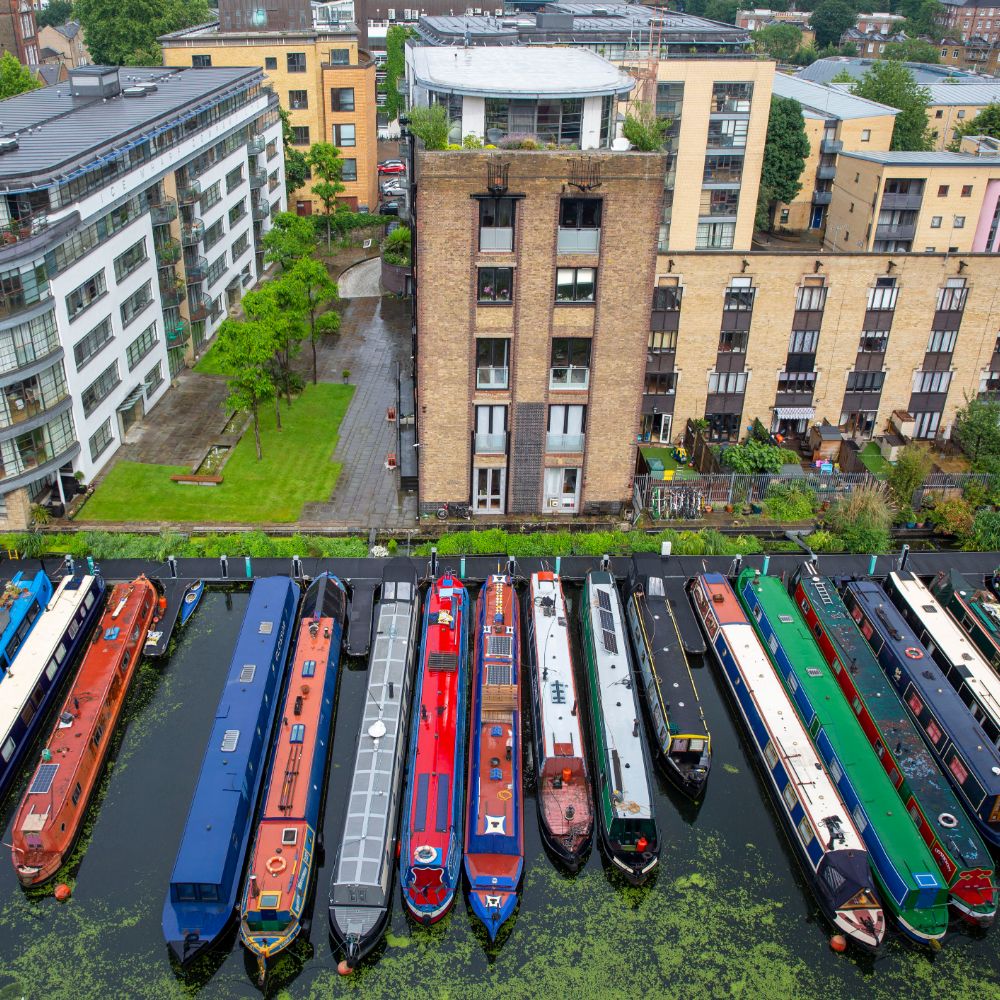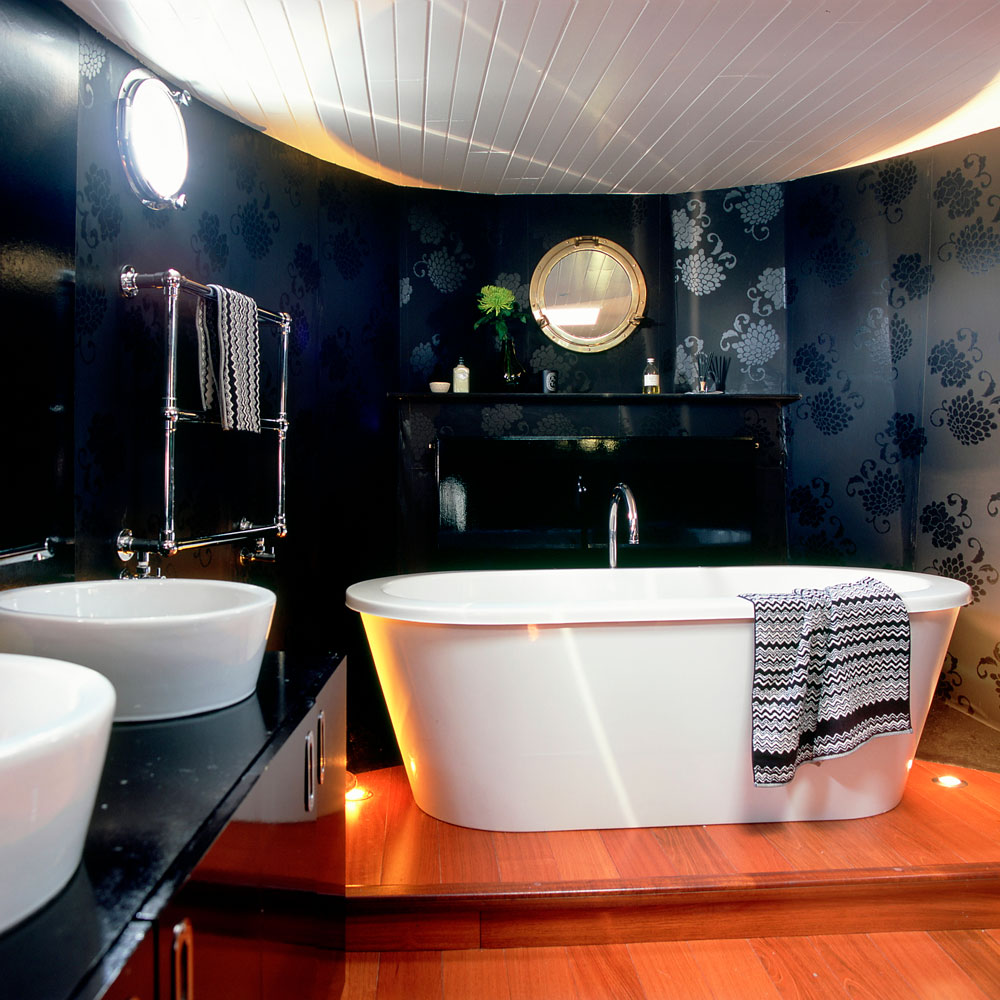Making waves – Lockdown is fuelling an unlikely boom for this style of property
Fancy your own floating home? There's a new demand for buying a houseboat right now
Sign up to our newsletter for style inspiration, real homes, project and garden advice and shopping know-how
You are now subscribed
Your newsletter sign-up was successful
Living on the water is making a splash in the buyer's market right now. Lockdown has sparked a surge in people ditching the land and living on the water, causing the trend for buying a houseboat to skyrocket.
Related: What will happen to house prices? Experts warn of a price crash for 2021
Once seen as a pastime or a second home for retirees, living in a houseboat is a real alternative for many people seeking to get on the property ladder. Or for those looking to escape the city and live a more peaceful life.
Marina communities are also described as very welcoming and close-knit, resembling small villages. So if you're looking for more community, it may be something worth considering?
And the financial incentives are there too. Houseboats are much more affordable than a regular apartment or home. Plus, most houseboats are exempt from stamp duty. There are a few exceptions in parts of the UK, but it is quite rare, so you're saving money before you even buy a houseboat!
Life on the water

The incentives of houseboat living already existed before the pandemic and subsequent lockdowns across Britain.
But because of lockdown, 2020 has seen a staggering surge in interest for houseboats. Floating home business Waterlodge boasts an increase in sales inquiries of just over 100 per cent year-on-year from 2019 to now.
Sign up to our newsletter for style inspiration, real homes, project and garden advice and shopping know-how
And by October 2020, the company claims they've sold 50 per cent more floating homes than they did in all of 2019, despite the business being closed for two months at the height of the pandemic.
Revealed: These are the postcodes with the fastest-growing house prices this year
Andrew Hyland, co-director of Waterlodge UK, says that like most businesses they too had to furlough staff during the first national lockdown. But when it ended and Spring came into view, something remarkable happened.
'The phones didn’t stop ringing. People realised they were unlikely to be able to enjoy their normal foreign summer holiday so wanted to make the most of their likely staycation – and what better way of doing that than on the water,' explained Hyland.
4 Top tips for if you're thinking of buying a houseboat

If all the above sounds appealing and you're thinking of taking the plunge from bricks and mortar to the water, consider these four tips first.
1. Discover which type of houseboat is right for you
The term houseboat may seem like a one-size-fits-all term, but it's not. Actually, true houseboats in their purest form don't have engines and can't move. They are static and are usually built on pontoons.
So there are many different vessels that causally fit inside the definition of a houseboat. You have narrowboats, which have limited space, are made of steel and are great for navigating Britain's waters.
You also have Dutch Barges, which are wider than narrowboats and can be up to 120 feet in length and 20 feet wide. They are usually former commercial vessels that have been converted into living quarters and provide lots of space and light. So take a look at which one you want and start doing your research!
2. Try before you buy
Don't just buy a houseboat off the cuff. Especially if you've never stayed in one or had any experience with them before.
With limited foreign travel options expected for at least the next few months, consider booking a houseboat holiday. This way you can get a feel for living on the water and experience what it's like being on one day-to-day.

3. Follow the money
Buying a houseboat isn't the same process as buying a home. It will be hard to get a mortgage for a floating home from traditional mortgage lenders. There are 'marine mortgages' available but do your research before you commit to one, as some require a hefty deposit.
4.Count the costs
Even though living on a houseboat is typically cheaper than living on land, there are lots of costs you need to consider before (and after) you take the plunge.
You'll need to pay for a boat survey before you buy your floating home, to check for any issues. This may lead to you paying for repairs to get things moving. Boat safety certificates, licences, insurance, mooring fees and other expenses all add up, so make sure you know what you're getting yourself in for.
Related:Make your money go further this Christmas with these five simple money-saving hacks
It's a buoyant market right now.